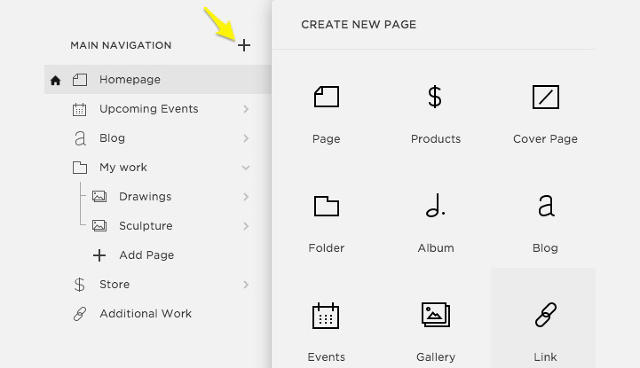Many years back, the battle cry began: Learn To Code! That call has only become louder since, with numerous bootcamps touting the idea that if you learn the basics of computer programming, you will almost certainly be guaranteed a sweet gig. Indeed, Bloomberg Businessweek devoted an entire issue to explaining precisely what code is.
It is true that learning how to code can take you far, although one skill does not necessarily ensure a healthy career. And as the call for programmers has increased, there has been a concomitant rise of services that offer platforms to automate coding skills. An early example was Geocities, which made it a cinch to set up a simple HTML website without knowing one word of code. Many successful professionals today do technical work even though they don’t have a mathematical background.
Platforms As Grunt Workers
Heather Bryant, a young woman who lives in Los Angeles and works at the company Sodexo, does just this. Her official title is a “technical solutions director,” and one of her primary roles is building apps. Bryant, however, has no background whatsoever in coding. In fact, she went to school for sports journalism.
Sodexo describes itself as a “contract management services provider.” In laymen terms, that means they set up all the extraneous needs of a business—be they janitorial services, painting, catering, anything infrastructure related, etc. One of Sodexo’s primary functions is creating applications that help project management. These apps help streamline how information is recorded and how it’s presented to people on a team.

Bryant’s job is to help build these applications. Her company uses a program called QuickBase, which is a platform for app building. It automates all the technical parts to make it possible for a layman to build at least a rudimentary business application. Before Bryant took up her role, Sodexo had outsourced app building. Her first role at Sodexo was in data entry, but one day she found herself playing around with an application that just wasn’t working right. After a lot of trial and error on the QuickBase platform, “I was able to rebuild the application how I thought it should be built,” she says.
At the time, it was a one-off project, but her boss was impressed that she was able to tackle it. She soon made building these B2B-specific apps her role at the company, since she enjoyed the process so much. The process of building with QuickBase is more visual than most app-building processes. Users create tables about the data they want to include in the applications, and then design the presentation of those figures. Bryant learned that this sort of building, using QuickBase, is something at which she excels. “People come to us with old processes,” she says, “paper Excel-based processes. We transform those into applications.” Her job isn’t crafting code to build brand-new products; it’s figuring out how to funnel functions and data into something that is more efficient.
Products Are Skills
Like QuickBase, Squarespace is another company that provides building platforms for people with non-technical backgrounds. It helps anyone build a pretty sleek-looking website. Extra-savvy users know enough code to personalize those websites.
But the company itself hires non-technical people to educate others on the platform and evangelize it. Mal Ward, for instance, works at Squarespace as a Customer Operations advisor. Her role is to work with customers who use the platform and teach them how to build sites using Squarespace’s suite of tools for non-coders. Her role has her liaising with multiple internal departments; she helps the training team out using her knowledge of what customers have told her. Ward also works on customer webinars. The brunt of her job is really knowing the Squarespace platform—understanding how to use it to build a good-looking site—and showing others how to successfully perform this task. Her background is in musical theater.

“I came into Squarespace pretty much not knowing anything in the tech world,” she says. At first, she admits, “it was scary.” But she slowly got familiar enough with the program that she could lead others in using it.
Her colleague Paulina Vo works as a community team member at Squarespace. Like Ward, she has minimal formal coding background (she did self-teach herself “the bare minimum”). She started out similarly to Ward, working predominately as a support specialist, but is now a project lead for the community team, helping to create ways to formally instruct people to use the Squarespace platform. This means she helps create processes that help build the Squarespace community and bridge the gap between its technical site-building backend and users who aren’t necessarily tech-savvy. This includes writing technical instructions, webinars, and others forms of content that help educate users. She isn’t exactly building Sqaurespace’s backend, but the role does require expert knowledge of the product. It also requires a lot of collaboration with other, more technical departments to make sure everyone at Squarespace understands what the company is working on.
Squarespace’s product relies on customers being able to use it without formal development skills. The company likes to hire people from varied backgrounds—read: not technical—to master the program, who can then make it even more intuitive for customers. Non-technical people who have learned the ins and outs of Squarespace are able to explain to others what is needed to make a good Squarespace site.
Working in tech has become a mainstream endeavor—anyone willing to learn a product can enter the workforce. More user-friendly platforms have opened up the tech industry’s playing field. Of course, coding is and will continue to be an important skill. But as more people become adept at programs like Squarespace and QuickBase (and new platforms enter the fray every day), a new league of workers comes to life as tech experts who don’t know code.
Fast Company , Read Full Story
(56)